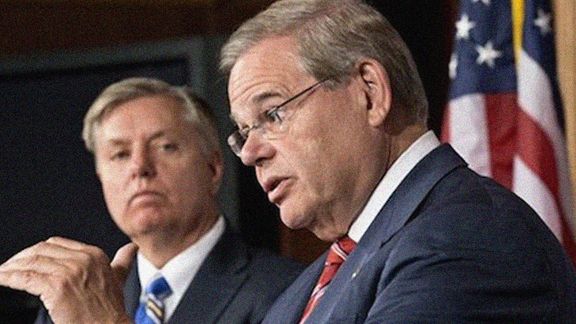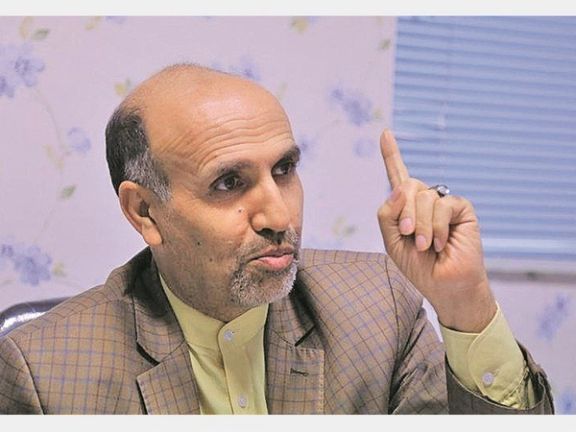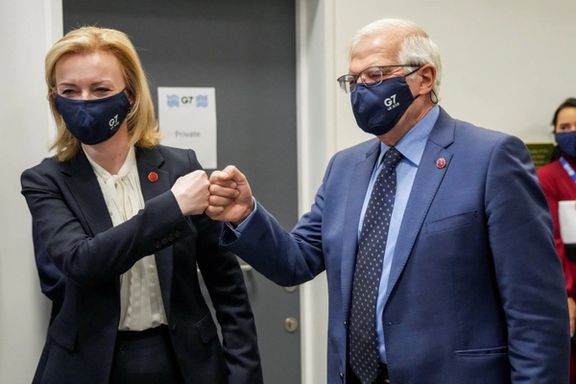Iran Reiterates Plans To Build More Nuclear Power Plants

While Iran’s insistence on its demands has cast doubts on a quick revival of the 2015 deal, the country’s nuclear chief spoke of building more nuclear energy plants.

While Iran’s insistence on its demands has cast doubts on a quick revival of the 2015 deal, the country’s nuclear chief spoke of building more nuclear energy plants.
Addressing a conference on the exchange of modern energy technologies on Tuesday, the head of the Atomic Energy Organization of Iran (AEOI) said Tehran pursues the “open door policy” and seeks to become a hub for designing and building nuclear power plants.
Mohammad Eslami added that “We intend to provide various services in the field of nuclear technology, including the development of nuclear power plants and nuclear power generation,” the he said, claiming that the country plans to convert 20 percent of its energy portfolio into nuclear power.
Eslami had earlier said that Iran plans to invest $50 billion for building new nuclear power plants, noting that the new power plants will be able to generate 10,000 megawatts of electricity, still far from the country’s total need.
For decades, Iran has neglected investment in other sources of power, especially renewables, making it almost impossible to bounce back in the foreseeable future, considering its isolation in the global community. Currently Russia is the only country cooperating with Iran in the nuclear industry.
Commissioned by Russia in 2011, Iran's Bushehr power plant has one operational unit that generates 1,000 megawatts, providing less than two percent of the country’s electricity. In July. Eslami said construction projects for phase two and three of the Bushehr Nuclear Power Plant have accelerated since a few months ago.
Russia says it received the needed assurances from the United States that sanctions for its invasion of Ukraine should not impact implementation of a revived nuclear deal, the JCPOA. If finalized, the renewed deal lets Russia cash in on a $10-billion contract to build atomic reactors in Iran.

In opposing revival of the 2015 Iran nuclear deal, United States senators Lindsey Graham and Robert Menendez have demanded Tehran end any uranium enrichment.
Speaking at a press conference in Jerusalem Monday, the two senators highlighted an earlier plan that the US ‘allow’ Iran and other Middle Eastern states to have nuclear power provided all enrichment takes place outside the region.
Graham and Menendez have been in Israel as part of a senate delegation. Menendez, a Democrat and consistent opponent of the 2015 Iran nuclear deal, chairs the Senate Foreign Relations committee, whereas Graham is a staunch supporter of Donald Trump and has recently spoken of “riots in the streets” should the former president be prosecuted.
The US pressed that Iran end uranium enrichment at the time of Europe-Iran talks 2003-05. While Tehran at that time suspended enrichment as a ‘goodwill gesture,’ it refused to give up a ‘right’ it said was enshrined in the Nuclear Non-Proliferation Treaty.
When Trump in 2018 withdrew the US from the 2015 deal – the JCPOA, Joint Comprehensive Plan of Action – ending uranium enrichment was one of 12 demands stated as aims of ‘maximum pressure’ sanctions.
Washington’s links with Europe
While Iran greatly expand its nuclear program since February 2021, the administration of President Joe Biden has sought to mend Washington’s links with Europe, damaged under Trump, and to take a joint approach over Iran with the three European JCPOA signatories – France, Germany and the United Kingdom, the ‘E3.’
While the US reviving a demand for zero enrichment could strain relations with the E3, and for sure with Russia and China, the Biden administration has found itself in talks with an Iran emboldened by surviving ‘maximum pressure’ and by its nuclear expansion. And while nuclear policy is set collectively under supreme leader Ali Khamenei, the President Ebrahim Raisi, who took office in August 2021, is less inclined to compromise than Hassan Rouhani, president when the JCPOA was signed in 2015.
Biden officials expressed disappointment at Iran’s latest input into what has effectively become US-Iran bilateral ‘ping pong diplomacy’ since the European Union proposed August 8 its ‘final text’ for restoring the JCPOA. Showing clear disappointment, Josep Borrell, the EU foreign policy chief, said Monday that without “convergence…the whole process is in danger.”
Deficiencies in the text?
JCPOA opponents in the US, as well as some observers, have highlighted what they see as shortfalls in the proposed text – with the slow pace of talks encouraging both speculation and leaks.
Laurence Norman, correspondent for the Wall Street Journal, highlighted in a Monday tweet a claim that the draft agreement would give the International Atomic Energy Agency (IAEA) only 60 days, between agreement being signed and ‘Reimplementation Day,’ to examine 18 months of data that the agency has not seen since Iran restricted IAEA access in February 2021.
The US-E3 position is that technical IAEA issues are separate from the ’political’ revival of the JCPOA. But Iranian leaders have publicly demanded an IAEA probe into unexplained uranium traces be dropped before the 2015 nuclear deal is restored, so the US and Iran have apparently struggled to find a suitable form of words to bridge the gap.
Menendez said at the press conference Monday he was unsure if a Congressional review of a revived JCPOA, which is required under the 2015 Iran Nuclear Agreement Review Act, could lead to any agreement being blocked. Menendez said the foreign relations committee would have hearings, but whether a vote in the Senate and House of Representatives would meet “the threshold under the law to nullify that agreement is another question.”
A majority vote in both houses could be vetoed by the president. The balance of either house, given the current volatility in US politics, remains in doubt although recent polls show the Democrats, generally more sympathetic to the JCPOA, gaining some momentum.

The attorney of three young protesters who were sentenced to death for participation in the bloody uprising in 2019 says a court has reduced their death sentences to imprisonment.
Babak Paknia said in a tweet on Tuesday that his clients Amir Hossein Moradi, Saeed Tamjidi, and Mohammad Rajabi, all under 30 years of age, have now been sentenced to five years behind bars.
Iran’s supreme court had confirmed the death sentences, but after reconsideration another court had earlier revised the decision to life imprisonment.
Paknia had earlier said that during the trial, the defense attorney was not allowed to participate in the process and a notorious judge, Abolghasem Salavati finally sentenced them to death. Judge Salavati, also known as the “hanging judge” among Iranian activists, was sanctioned by the United States for violations of human rights and “unfair trials in Iranian Kangaroo courts.”
Moradi, Tamjidi and Rajabi were reportedly subjected to torture during interrogation to obtain forced confessions, and the judiciary had said they were linked to the exiled Albania-based opposition group Mujahideen-e Khalq (MEK).
According to some reports, in the "bloody November" of 2019 at least 3,000 protesters were killed by the Islamic Republic’s security forces and nearly 20,000 were arrested. Earlier estimates ranged from 300 to 1,500 civilians killed nationwide. The protests were the most widespread against the regime since its establishment in 1979, and the internet outage gave security officials the opportunity to commit mass killings amid a news blackout for about 10 days.

No Iranian president has faced so much criticism over his government’s economic record in the first year of his term as President Ebrahim Raisi is facing now.
Economist Mehdi Pazouki says, "The government of President Ebrahim Raisi has been put at the disposal of the Imam Sadeq alumni who have no executive experience." Imam Sadeq University is known for its more than usual religious orientation.
Pazouki added in an interview with the centrist daily Ham Mihan on September 2 that "economic managers of the early years after the 1979 revolution had a far better performance than the current officials."
Meanwhile, the moderate news website Rouydad24 quoted Pazouki as having said in the interview that no foreign investment is likely to be made in Iran without solving the Islamic Republic's problems with the JCPOA and FATF. The economist was hinting that Iran needs to improve its ties with the West by reaching a nuclear deal and accept the terms of FATF, an international financial watchdog.
The Financial Action Task Force, whose evaluations of a country’s financial regulations can impact it ability to interact with the international financial system has black listed Iran and demanded legislation to improve transparency and a ban on financing of terrorism.
Pazouki added that the government's economic team behaves like an organized religious organization. "When you hand over a government ministry to someone whose only accreditation is having studied at the Imam Sadeq University and has no background in executive work, you will obviously leave the government face to face with economic problems," he said.

Journalist Zaynab Ghobayshavi writing in Rouydad24 quoted critics who say Raisi's economic team cannot step up to its job and his aides lack coordination and a teamwork mentality.
Pazouki told Rouydad24 that Raisi’s economic ministers have yet to present an economic plan, but they lack a strategy. Nonetheless, the Raisi administration claims that the budget bill for the current year has been formulated based on the country's sixth development plan that was made under former President Hassan Rouhani while the new administration has been constantly criticizing its predecessor’s economic policies.
"If Rouhani's plans are bad, why are you still following them as your own policy?" Pazouki asked.
During the election campaign in 2021, Raisi had said that he has a 7000-page economic plan, but no one has ever seen even seven pages of that plan, the economist said. He then argued adding that lacking a plan, the Raisi Administration made one of the biggest mistakes in the history of the Islamic Republic, that is increasing the minimum wage by 57 percent overnight while the country was suffering from an inflation rate more than 40 percent. It also increased employment in the government sector by 38 percent.
Even some of Raisi’s political allies, such as hardline conservative politician Hedayatollah Khademi have charged that Raisi's ministers are not fit for their jobs and the President should fire them and demand operational plans from the remaining ministers.
Khademi went on to say that Raisi's ministers failed to meet any one of the nation's expectations during the past 13 months, and even if Iran reaches an agreement with the West, the current ministers will not be able to solve any of the country's problems.
In another development, lawmaker Somayeh Rafiei has also said that after 13 months in office, there is no coherence and coordination visible in Raisi's economic team.
Iranian lawmakers have repeatedly threatened to impeach Raisi's economic team, and tabled motions for their impeachment, but Speaker Mohammad Bagher Ghalibaf have so far stopped every motion, waiting for Raisi to fire them.

US Ambassador to Israel Thomas Nides said Monday that President Joe Biden has assured Prime Minister Yair Lapid that Washington will never tie Israel’s hands against Iran.
Reiterating the pledge to stop the Islamic Republic from acquiring nuclear weapons, Nides said at a press conference in Jerusalem that “We understand the aggression of Iran,” adding that “[Biden] was very clear to the prime minister in that belief.”
“We also would like a diplomatic solution, but only under the conditions the president has laid out with our European colleagues. There are many gaps and conditions that have to be reached before we would actually agree to an agreement,” Nides said.
He made the remarks as a congressional delegation, including Robert Menendez, the chairman of the Senate Committee on Foreign Relations, is visiting Jerusalem. Menendez told a press conference that Biden has pledged to submit any agreement on Iran’s nuclear program to Congress for review.
He added that a review would be conducted by his committee and that there would be a vote on such a deal, noting that he was unsure if the outcome of that vote “would meet the threshold under the law to nullify the agreement.”
Republican Senator Lindsey Graham of South Carolina, also part of the congressional group, said the delegation was briefed by Mossad chief David Barnea, who will be in Washington this week to attend closed-door classified meetings of House and Senate intelligence committees.
“The Mossad leader’s trip to the US will focus on tightening security and intelligence coordination with the Americans surrounding the Iranian nuclear issue,” read a Sunday statement from Lapid’s office.

Liz Truss’ record of pragmatism in politics has not stopped some commentators thinking or hoping she will take a harder line than predecessor Boris Johnson.
In September 2021, Truss, just appointed foreign secretary, sat down quietly with her Iranian counterpart Hossein Amir-Abdollahian on the sidelines of the United Nations general assembly. Truss reportedly assured Amir-Abdollahianthat London was serious about repaying the £400 million debt owed by Britain since the 1970s for undelivered weapons.
Truss had told senior civil servants on promotion to the foreign office days earlier, moved by Prime Minister Boris Johnson from international trade secretary, that her “number one priority” was securing the release of three Britons detained in Iran – Nazanin Zeghari-Ratcliffe, Anoosheh Ashoori and Morad Tahbaz.
Richard Ratcliffe, husband of Zeghari-Ratcliffe who was freed along with Ashoori March 2002, praised Truss in a July newspaper article. “Despite me camping angrily on her doorstep, and our sometime fractious relationship, she delivered on her promise to us to get Nazanin home,” Ratcliffe wrote. “After five foreign secretaries, that matters. She did the one thing everyone knew would work: she paid the UK’s debt.”
Not everyone was pleased. Mike Pompeo, who as secretary of state under President Donald Trump launched maximum pressure as the US left the 2015 Iran nuclear deal condemned the £400 million ($460 million) payment as “blood money.”
Truss has a long record of pragmatism. President of the Oxford University Liberal Democrats when a student, she was opposed the UK leaving the European Union (EU) during the 2016 referendum but later became a ‘Brexiteer.’
‘Not dealing with a perfect world’
Pressed in a House of Commons committee in June, Truss fielded a question on human rights in the Arab Gulf states. “We are not dealing with a perfect world,” she said. “We are dealing in a world where we have to make difficult decisions…”
As foreign secretary, Truss has worked along with the Biden administration in line with the British and European policy of reviving the 2015 nuclear deal, the JCPOA (Joint Comprehensive Plan of Action). Along with French and German counterparts, she has increasingly placed the onus to Iran to make compromises as the talks have become US-Iran contacts, mediated by the European Union, since Vienna multilateral meetings between Iran and six world powers paused in March.

Hopes for the talks have risen and fallen in recent weeks. In comments made Monday to reporters in Brussels, Josep Borrell, head of EU foreign policy, said he was “less confident today than 28 hours before on the convergence of the negotiation process,” and that without convergence, “the whole process is in danger.”
Borrell: Nuclear talks ‘in danger’
While France and Germany, and the European Union, may look to Truss to hold the UK’s current position, Monday’s news that Truss had been elected leader of the British Conservative Party and therefore prime minister designate, prompted celebrations among many conservative commentators.
“To leave the past few years of Chamberlain Conservatism and reclaim Churchill’s mantle, Truss must act boldly from day one to break the FCO’s [foreign office] hold on No 10 [the prime minister’s residence],” tweeted Richard Goldberg, senior advisor to the Federation for Defense of Democracies. In calling Johnson an ‘appeaser,’ Goldberg referred to Neville Chamberlain, British prime minister 1937-40, who explored options for stopping Nazi Germany short of war.
‘No need to tread on eggshells’
Nile Gardiner, director of the Margaret Thatcher Centre for Freedom at Heritage Foundation and frequent contributor to Fox News, wrote August 31 that Truss would challenge the Biden administration over aspects of US foreign policy, “such as its weakness on Iran.” Truss, wrote Gardiner, would “not be afraid to take on the liberal establishment at home and abroad.”
The Daily Telegraph ran a leader August 28 headlined ‘Truss must bloc Iran deal,’ which it said was “likely to offer at best nothing more than a trivial delay to the ayatollahs’ atomic ambitions, even as it unlocks cash likely to fund attacks against the very Western governments which sign up.” With Zeghari-Ratcliffe freed, the paper opined, “there is no need to tread on eggshells.”
Towards the end of the Conservative leadership election, United Against Nuclear Iran speculated in the US that her rival Rishi Sunak’s “domestic emphasis on Britain’s finances might sway him toward a pro-trade rationale and attendant support for the JCPOA…A Sunak government would suggest a continuation of his former boss’s [Boris Johnson] Iran policy: ongoing support for the JCPOA as a ‘least bad’ option to restrain and possibly moderate Iran in the long term.”
Among other JCPOA opponents, Israel Prime Minister Yair Lapid congratulated Truss as “my new friend, a true friend of Israeli.” The Jerusalem Post, highlighting Lapid and Truss overlapping as foreign ministers, cited “sources close” to the Israeli prime minister that Truss “has shown an understanding of the threat Tehran poses to the Jewish state and is closer to Israel’s view on Iran’s prevarications in the talks.”